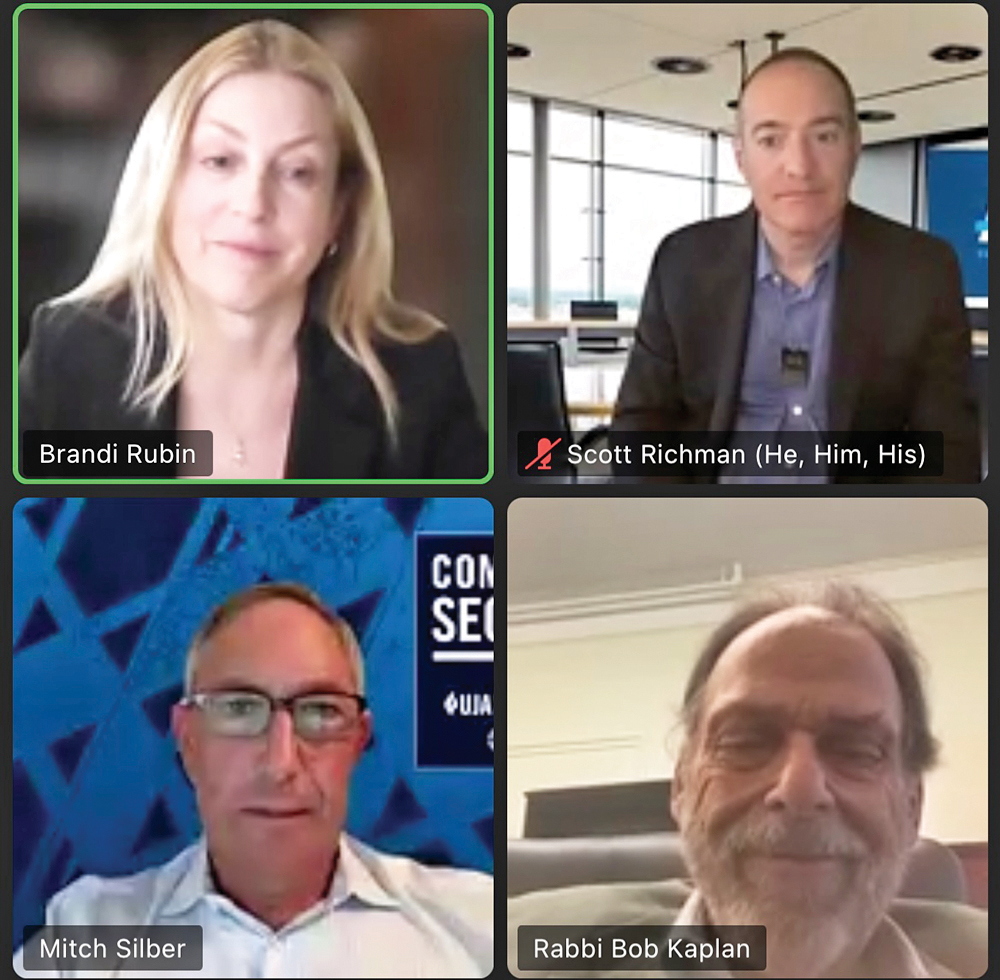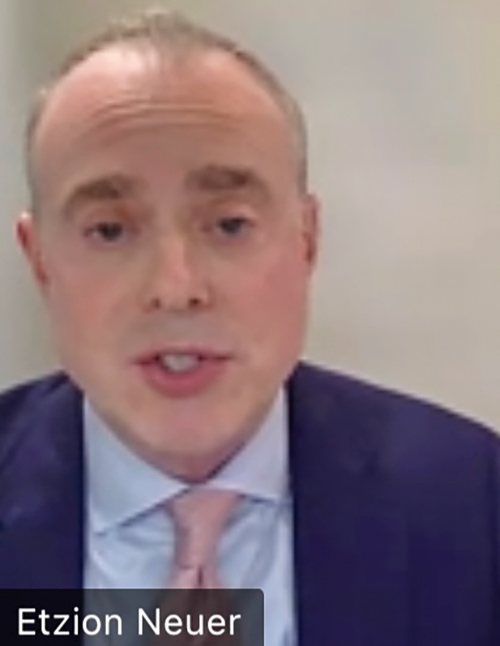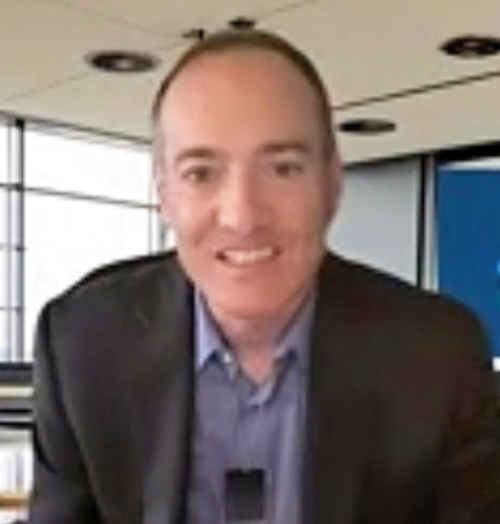
On Tuesday, July 23, the Jewish Community Relations Council of New York presented a discussion on the state of antisemitism in New York. The panelists included Scott Richman, ADL New York/New Jersey regional director; Mitch Silber, Community Security Initiative executive director; Rabbi Bob Kaplan, JCRC-NY Center for Shared Society executive director; and Etzion Neuer, managing director, Strategy for Combating Antisemitism at UJA-Federation. Brandi Katz Rubin, deputy regional director, ADL NY/NJ moderated the conversation.
Katz Rubin began, “Since October 7, our community has faced a significant rise in antisemitism. Jewish organizations are working hard to combat this and are increasingly working together proactively and reactively to protect the Jewish community, both for today and the future.”
Richman described that since 1979, the ADL has been compiling an annual audit of antisemitic incidents. “The audit is a really unique way of taking the temperature of antisemitism, because it’s not a survey. It’s actually based upon ADL’s incident response work. ADL responds to antisemitic incidents literally every day of the week. Of course, you had a huge uptick since October 7.” He presented the quick headline, “2023 was the worst year for antisemitic incidents since ADL has been recording this more than four decades ago. There were 8,873 incidents we vetted, verified and responded to across the nation, an incredible jump, 140% over the year before.” In his presentation, Richman showed that if you added the three years prior, 2020, 2021 and 2022 “all incidents to which we responded, will not reach that 8,873.”

Silber explained CSI is the organization charged with enhancing security for all Jewish institutions and Jewish population centers in areas stretching from Montauk to Albany. “Every day, seven regional security directors are working with synagogues, schools, JCCs, camps, Jewish agencies and Hillels to improve their physical security, help them apply for and implement security grants, provide training to staff and respond when incidents occur,” adding, “A close working partnership with the Community Security Service (CSS) plays an important role as a volunteer security force in the field.
“On college campuses,” he reflected, “we saw a nationally orchestrated effort to foment chaos on campus this past year. It included a radicalized student population, naive, misplaced morality, motivated students, outside agitators and responses by college administrators sometimes infused with more than a whiff of antisemitism. Let’s be clear, campus security responds to the wishes of the administration. This permissive environment for antisemitism, cloaked as anti-Zionism, and the regular harassment of Jewish students was pervasive.”
Silber continued, “I’m not optimistic this fall will be much different. In fact, after a year of not getting their demands met, we foresee an escalation by anti-Israel activists. CSI is launching a campus security program up and down the Amtrak corridor, between DC and Boston, at 25 key campuses to help protect Jewish students from hate. We’ve hired a campus security director. We’ll have financial resources to provide private security, when necessary, to protect Jewish students’ events. We’re in partnership with CSS to provide some basic physical security training for Jewish students.” Silber described how their intelligence desk will have an analyst focused on monitoring protest activity, “so that Jewish organizations like Hillel, Chabad and Israel on Campus, among others, are not surprised when these protests occur.”
Reflecting on why we are experiencing the surge in antisemitism, Kaplan described, “What we are living in today, where hate has become almost acceptable, the guardrails that existed in our society for quite some time have been taken off and we are experiencing hate.”

Neuer noted that 10 years ago, you wouldn’t have seen a UJA Department of Antisemitism and there was only a small budget line for security. He said, “Then, Tree of Life happened, there was Poway, there was Jersey City. That became terrifying. It became clear that one person focusing on Jewish security was insufficient. The challenges we face are very imposing and can sometimes feel overwhelming. Make no mistake, I am a person of great optimism when it comes to the survival of the Jewish people. If we’re going to make a difference, as a community, it’s only going to happen if we work together. We’re seeing organizations working together, unified and determined, and it renews my faith.”
Katz Rubin concluded, “I want to highlight the collaboration between these panelists and their organizations and our continued commitment to work together to combat antisemitism. All forms of hate and toxicity threaten our democracy.”
Judy Berger is The Jewish Link Bronx, Westchester and Connecticut community editor.










